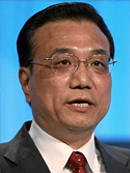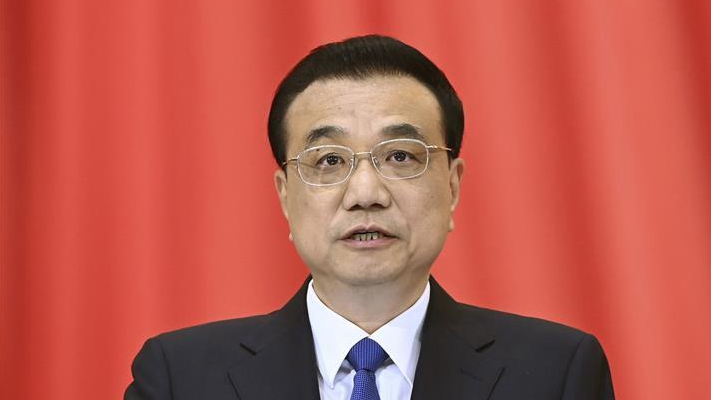 Name
Name
Li Keqiang 李克强
Current status
Premier of the State Council
Born
1955
Relevance to Tibet
Second in the Politburo Standing Committee
 Name
Name
Li Keqiang 李克强
Current status
Premier of the State Council
Born
1955
Relevance to Tibet
Second in the Politburo Standing Committee
Pronunciation: Lee Kuh-cheeyahng Soundbite
Born: 1955, Anhui Province.
Education: Sent for rural labour during Cultural Revolution and named “Outstanding Individual in the Study of Mao Zedong Thought.” Studied Law at Beijing University with a Ph.D. in Economics; He was a student group leader and some classmates became dissidents (see below).
Career: Was first among Vice Premiers from 2008 – 2013. He seems interested in climate change, energy efficiency, health care, and affordable housing.
Prospects: He will be expected to spend a decade as Number 2 in Politburo Standing Committee and Premier of the State Council.
Relevance to Tibet: One of the two most powerful leaders in China.
 Number two in the Politburo Standing Committee and succeeded Wen Jiabao as Premier of the State Council in March 2013.
Number two in the Politburo Standing Committee and succeeded Wen Jiabao as Premier of the State Council in March 2013.
Li is considered by many to be “a 13-year-younger carbon copy of Hu Jintao” – his mentor – because of great similarities in background, style and philosophy. [A Reuters report on 31 August 2012 quoted sources as saying that Hu Jintao was negotiating to promote Li to be a vice chairman of the Central Military Commission, to allow Hu to maintain some influence in this powerful body after he stepped down, but this did not transpire.]
Hu and Li’s 25-year friendship was forged at the China Youth League. Hu wanted Li to succeed him as president but was forced — by relatively new policy of governance by consensus [also backroom power politics] — to accept Xi Jinping.
Li is credited with a sharp intellect, even temper and ability to turn potential enemies into allies (Financial Times). Speaks fluent English.
Earlier Career:
Li Keqiang joined China Youth League 1980 and was General Secretary 1993 – 1998.
Governor of Henan Province in 1998 at age of 43, China’s youngest governor Party Secretary of Henan;
Party Secretary of Liaoning Province (2004 – 2007). Dogged with a “bad luck” label because of a series of disasters—fires, coal mine explosions—that occurred in Henan and Liaoning. In Henan, he became known as “three fires Li”.
Criticized for slow response to AIDS epidemic caused by infected blood in Henan and generally gave a lackluster performance as governor.
He has a low profile and, until recently, had done little foreign travel. A high-profile visit to Hong Kong in August 2011 created outrage when demonstrators were over-zealously controlled.
November 2013 saw the creation of a major new leading group on “Overall Reform” led by Xi Jinping. Three other Politburo Standing Committee members are part of this Group; Li Keqiang, Liu Yunshan and Zhang Gaoli. The South China Morning Post reported that Xi had named subgroups to focus on six reform categories: economics and ecology; culture; democracy and law; social systems; party building; and party discipline.
Fascinating facts:
According to the Financial Times, Li studied under Gong Xiangrui, who gave a class on constitutional democracy. With several other students, Li helped translate The Due Process of Law by “people’s judge” Lord Denning. Some of Li’s classmates became dissidents or human rights activists. These include Wang Shaoguang, Hu Ping, Zhang Wei, Fang Zhiming, Wang Juntao and Yang Baikui (see quotes below).
According to Cheng Li, Li experimented with democracy, winning election as head of the student assembly. On first joining China Youth League Li was criticized for his liberal views. He is reported to have a photographic memory.